
Opinions
14:25, 03-Jul-2018
Opinion: Uruguay is “a global football power,” according to President Xi
Updated
14:07, 06-Jul-2018
Fernando Lugris
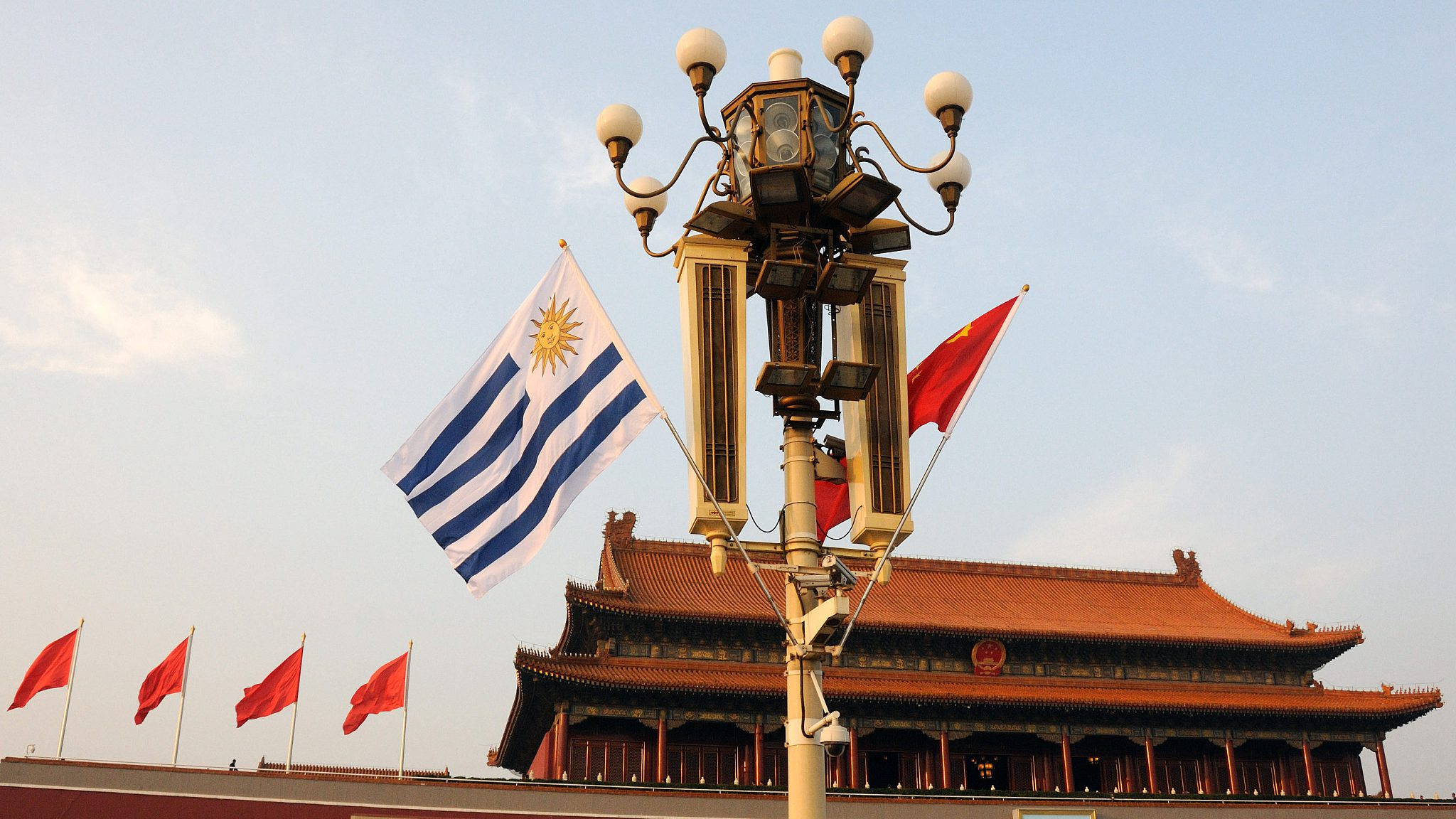
Editor's note: Fernando Lugris has been Uruguay’s ambassador in China since 2015. The article reflects the author's opinion, and not necessarily the views of CGTN.
On Sunday, as Uruguay’s ambassador to China, I returned to Beijing from Guangzhou after a visit to the Uruguayan community there, the largest in China. On these short trips before entering the aircraft, I usually grab a newspaper to read on board the flight. After having checked it thoroughly, I realized that there was no news of Uruguay.
Of course, that’s par for the course as most media outlets, be they international or national, rarely feature any reports about my country.
But I have to say that this time I was absolutely shocked. It stands the old truism that “no news is good news” on its head to be a case of “good news is no news.”
What shocked me was that, just the night before, Uruguay beat Portugal, the previous European champion, at the men’s football World Cup. Thus Uruguay advanced to the tournament’s quarter-finals, having managed four consecutive victories out of four matches played; scoring seven goals; and also defeating African champion Egypt, Saudi Arabia, and host Russia, who went on to defeat the powerhouse Spanish team.
At this competition, Uruguay’s “silent” stars Edinson Cavani, Luis Suárez and Diego Godín proved once again that they are at the top of their game, even surpassing other players who garner all the attention and publicity in Chinese media.
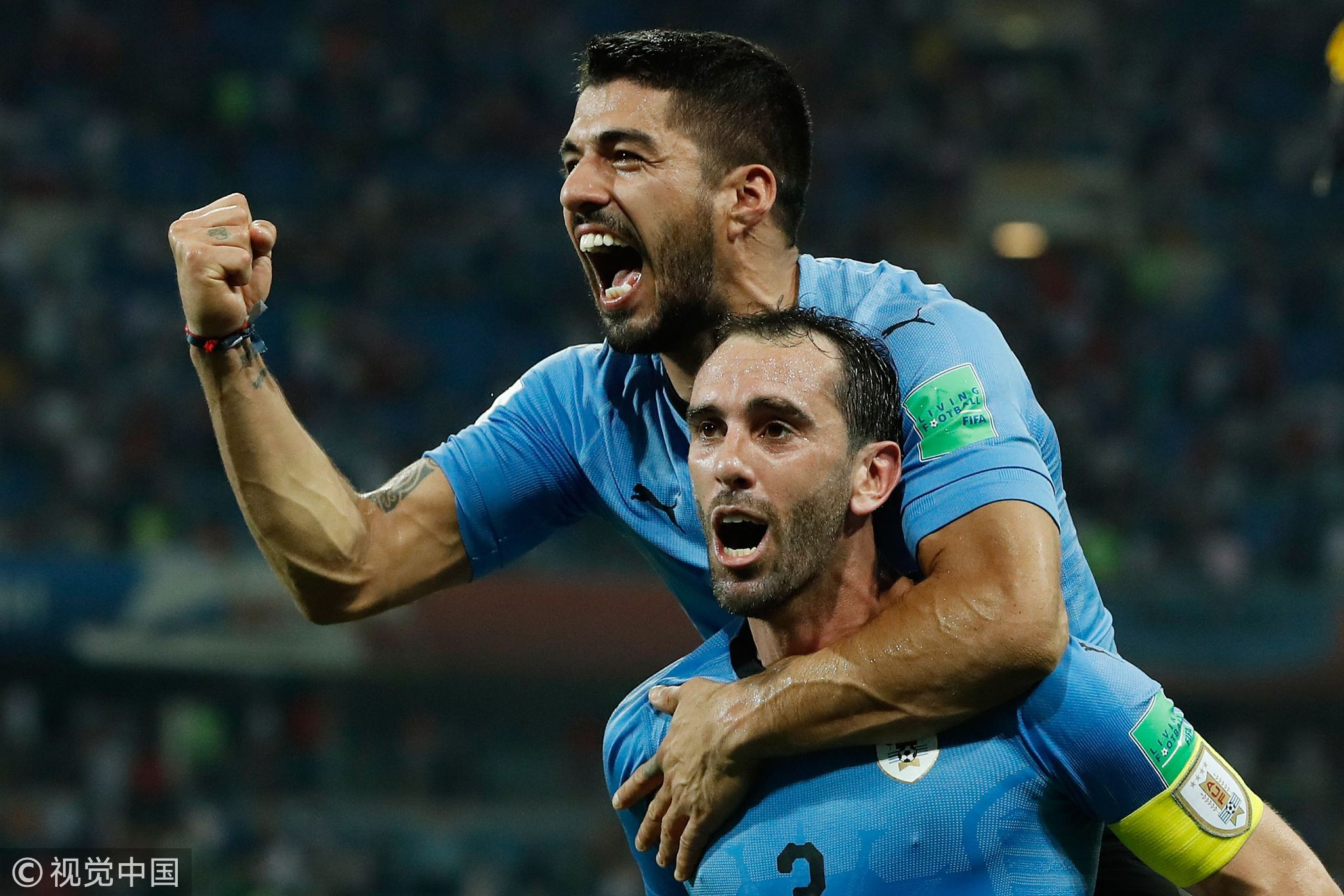
June 30, 2018: Uruguay's forward Luis Suarez and Uruguay's defender Diego Godin celebrate their win during the Russia 2018 World Cup football match between Uruguay and Portugal at the Fisht Stadium in Sochi. / VCG Photo
June 30, 2018: Uruguay's forward Luis Suarez and Uruguay's defender Diego Godin celebrate their win during the Russia 2018 World Cup football match between Uruguay and Portugal at the Fisht Stadium in Sochi. / VCG Photo
This remarkable performance was not news, as it is not news that this tiny country of 3.4 million people and more than 12 million heads of cattle has won the Americas Cup for men’s football a whopping 15 times (compared to the 14 and 8 trophies which have gone to Argentina and Brazil, respectively); made it to the World Cup semifinals four times (the most recent in 2010), and even won it twice in 1930 and 1950.
Neither is it news that Uruguay hosted the first ever men’s football World Cup in 1930, a feat now remembered at the Museum of the History of Football in Montevideo, the country’s capital, ready for Chinese tourists to visit.
When the President of Uruguay, Tabaré Vázquez, visited China in 2016, he gave President Xi Jinping a replica of the historic stadium where the 1930 World Cup was played.
This was a symbol of both friendship between the two countries, and also of an area (football) in which we would like to pursue further cooperation with China in the framework of the “Strategic Partnership” then established.
Now, two years after that defining moment in the history of our bilateral relations, President Vázquez awaits President Xi’s visit to Uruguay in order to upgrade the fertile “Strategic Partnership” into a “Comprehensive Strategic Partnership.”
In spite of its small population, Uruguay’s national team and its football clubs have accumulated an unmatched array of international titles. But why does Uruguay never make the news?
I guess that might have to do with its robust political, economic, social and even seismic/meteorological stability, which prevents the country from falling prey to the kind of catastrophes we so often see in the news.
My country’s lack of visibility in traditional media has prompted our government and the Embassy of Uruguay in Beijing to launch a campaign both around the world and China to spread the message about the “goals” which the country has scored in other areas of life besides football.
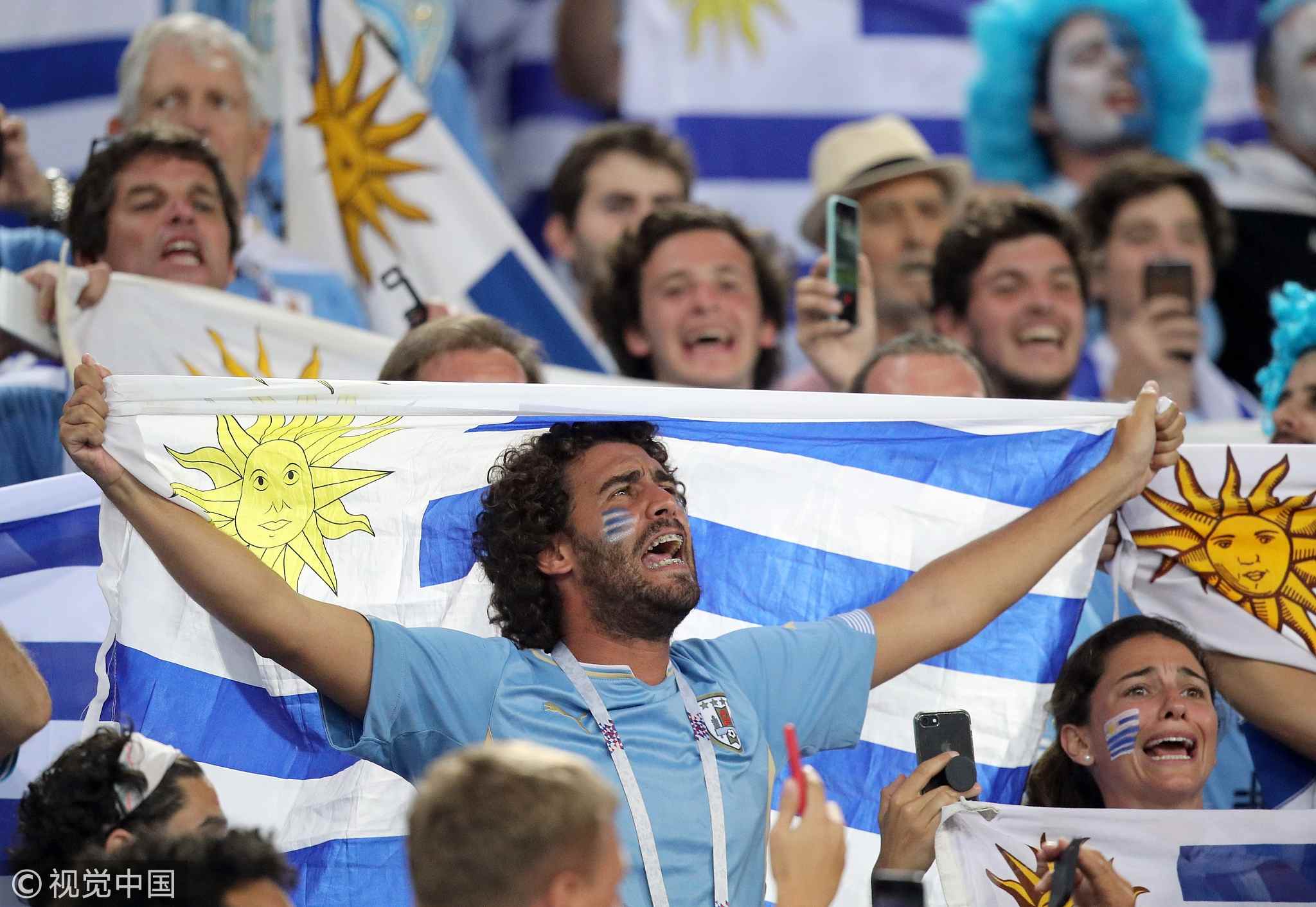
June 30, 2018: Uruguay's supporters ahead of their 2018 FIFA World Cup Round of 16 football match against Portugal at Fisht Stadium. / VCG Photo
June 30, 2018: Uruguay's supporters ahead of their 2018 FIFA World Cup Round of 16 football match against Portugal at Fisht Stadium. / VCG Photo
Among these are some hidden, but nevertheless meaningful achievements, such as our being ranked 1st in terms of GDP per capita in Latin America and also having the most equal distribution of income in the region; or our outstanding performances in indices which assess freedom from corruption, the prevalence of the rule of law, and social inclusion.
My country, along with Canada, earns the highest scores on international indices for democratic values in the Americas. Uruguay was also the first country in the world to regulate the production, distribution, and sale of cannabis and also was among the first to legalize same-sex marriage.
In 2017, Uruguay was the main supplier of beef to China (worthy of mention is also its award-winning Tannat red wine, which provides the perfect accompaniment to our red meats). We are also the fourth largest provider of soybeans to this country.
This is excellent news for our Chinese friends not only for the obvious commercial reasons, but also because high-quality proteins may be considered part of the “secret” behind Uruguay’s success at football.
Today, our country is increasing the promotion of our superb dairy products in China, with a view to engaging Chinese children, who by having them on a daily basis might grow into future world champions.
Discreetly, without appearing in the news, this small South American champion is striving for the full integration of its economy with that of China.
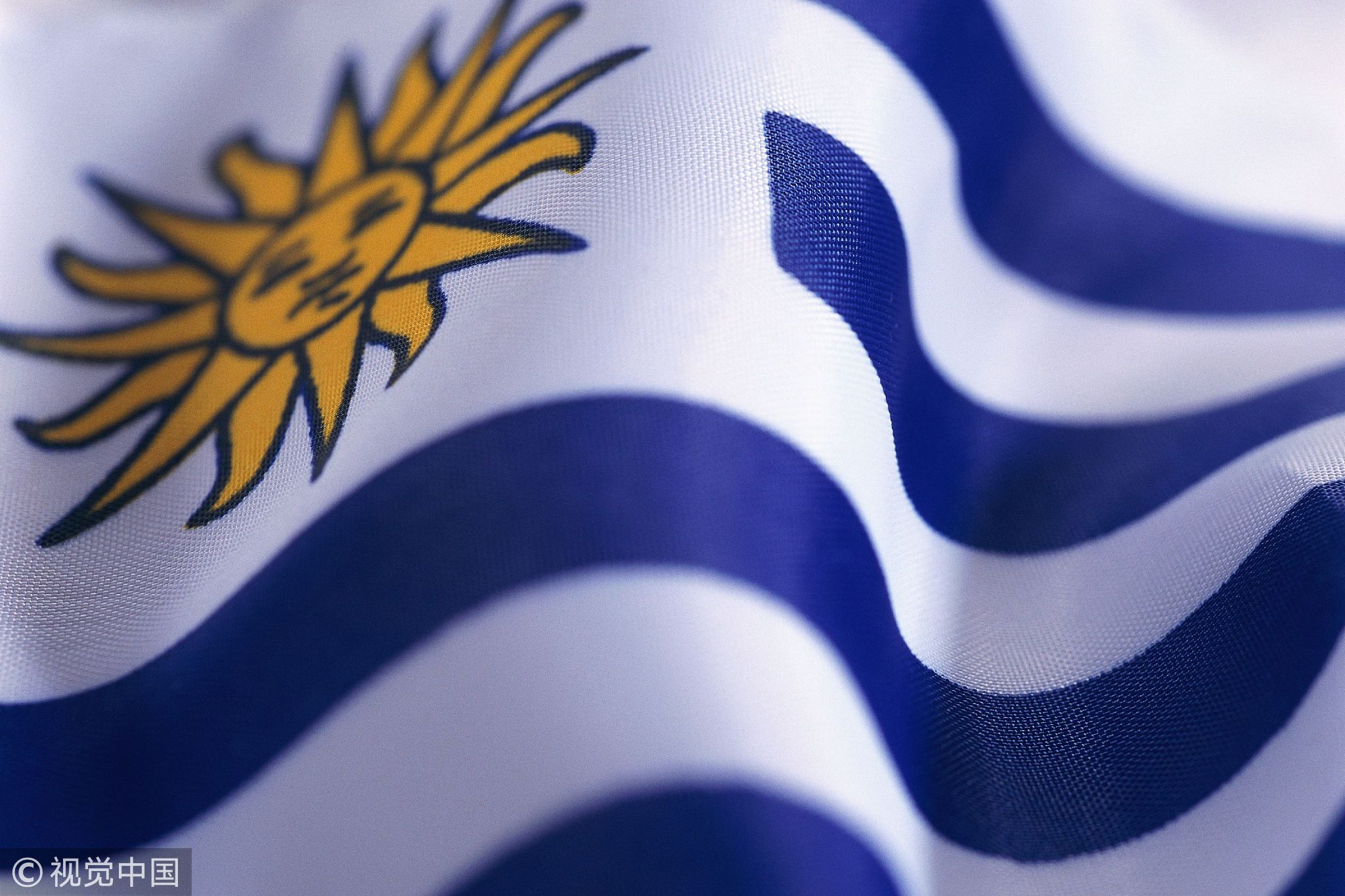
Flag of Uruguay. / VCG Photo
Flag of Uruguay. / VCG Photo
Furthermore, we are committed to deepening our friendship with this country, which we believe constitutes a new example of how South-South cooperation can be pursued between asymmetrical, but highly complementary countries; this is indeed Uruguay’s most important match to be played with China.
In a letter last month to President Vázquez, President Xi himself, perhaps China’s number one football fan, wished Uruguay success at the current World Cup, and reiterated his intention that the two countries increase their cooperation in football.
We modestly believe that this expression is a strong invitation for Chinese tourists to visit our country, which happens to have not only one of the richest football histories, but also an excellent performance as host to an ever-increasing number of international visitors (every year, Uruguay literally doubles its population with foreign travelers who choose to spend their holidays with us).
Furthermore, we understand that President Xi’s words are an invitation for Chinese children and youngsters to learn football (and, why not, the Spanish language) in Uruguay, a friendly country which endorses the strengthening of relations between the whole of Latin America and the Caribbean and China.
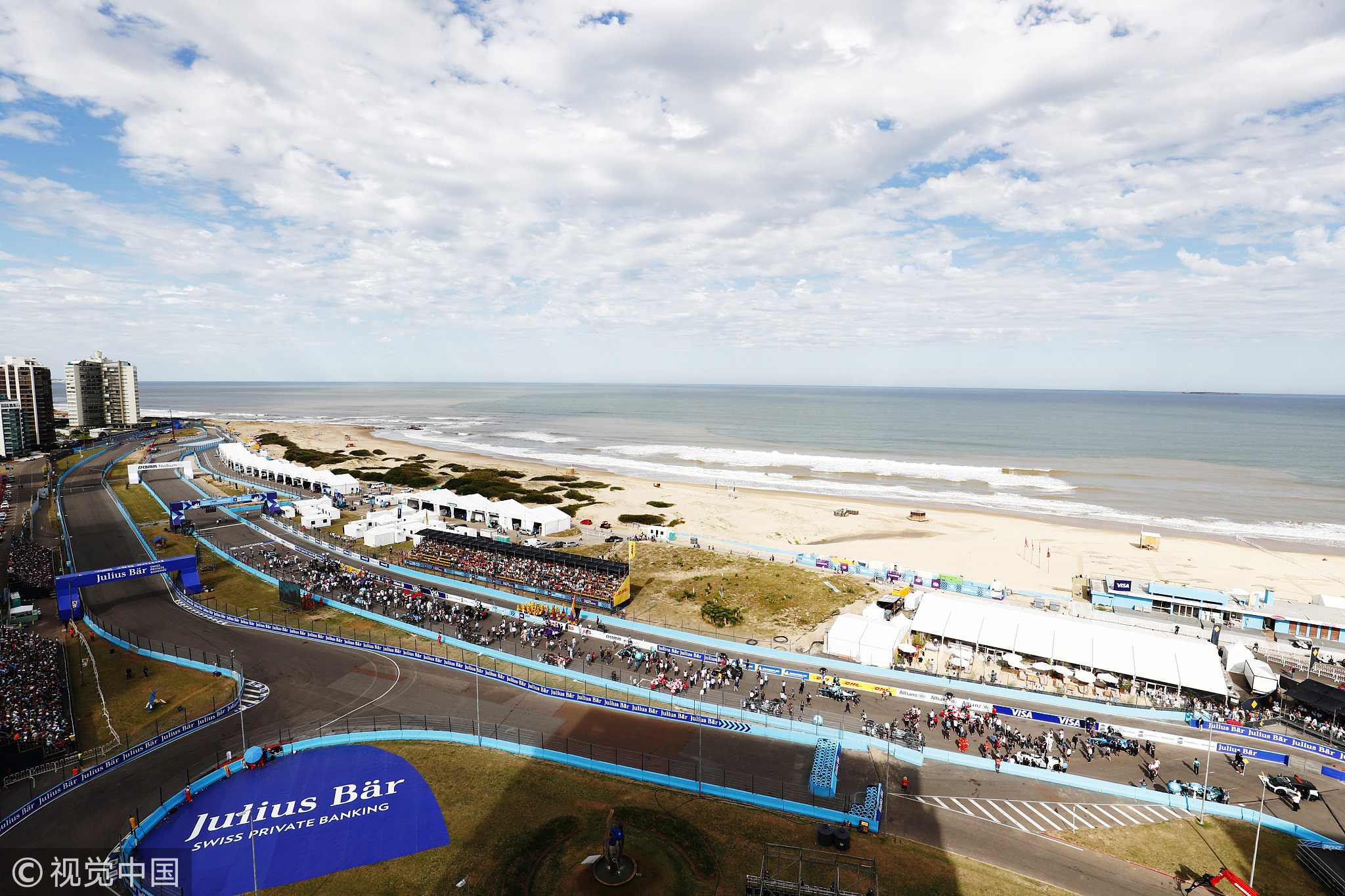
The seaside resort of Punta del Este in Uruguay. / VCG Photo
The seaside resort of Punta del Este in Uruguay. / VCG Photo
This mission explains why the fabulous Uruguayan seaside resort of Punta del Este hosted the 11th China-Latin America and the Caribbean Business Summit last November, and why Uruguay’s chairmanship of the MERCOSUR regional club (also composed of Argentina, Brazil, and Paraguay) will try to prioritize the bloc’s understandings with China.
Of course, we would like to win the World Cup again, but our final goal is to be world champions in terms of building a comprehensive strategic partnership with China, including through the bridge of football.
However, as the manager of our national team, Mr. Óscar Washington Tabárez, emphasizes time and again, it is only with genuine humility that we will be able to attain this, pursuing victory in each and every game, one by one.
Even though the media may not pay Uruguay the kind of attention we believe we deserve, China and its ever-growing number of football fans certainly do; they follow our team’s success in the World Cup with much admiration.
Thus, I feel the appreciation of Uruguay’s government and its people for President Xi’s kind words in his letter to President Vázquez, where he recognized Uruguay as a “global football power,” which has managed “extraordinary feats in the world history of football.”

SITEMAP
Copyright © 2018 CGTN. Beijing ICP prepared NO.16065310-3
Copyright © 2018 CGTN. Beijing ICP prepared NO.16065310-3